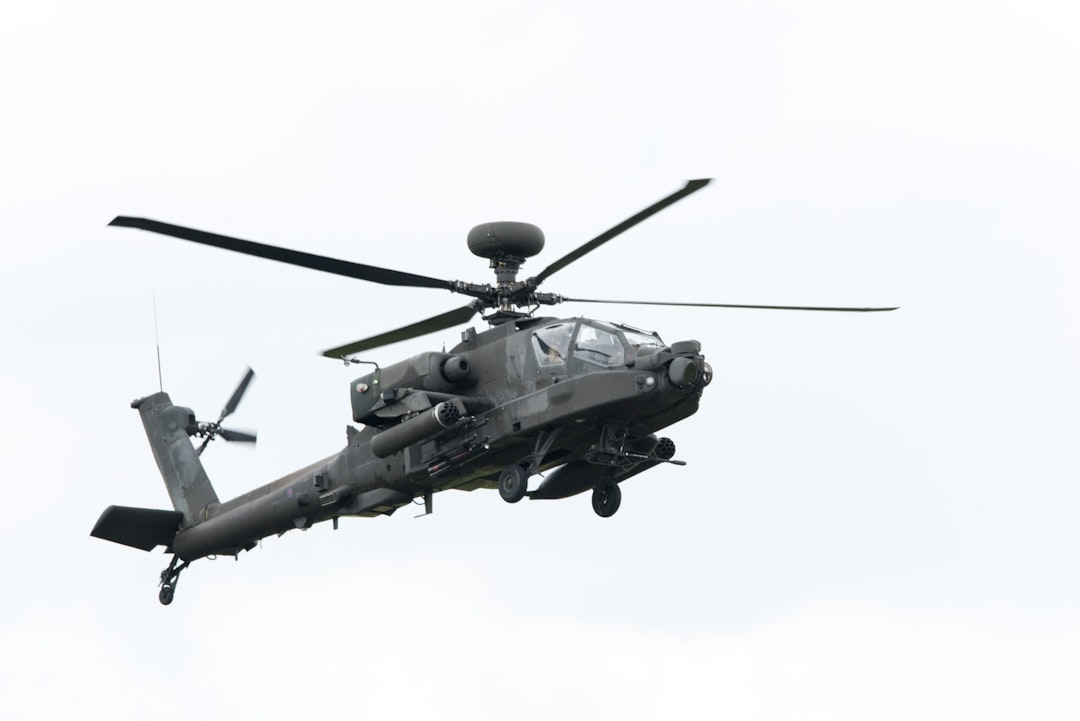Covert operations have long been a significant aspect of national security and intelligence strategies employed by governments around the world. These operations, characterized by their secretive nature, are designed to achieve specific objectives without revealing the identity of the actors involved. The United States, in particular, has engaged in a variety of covert operations throughout its history, often justified by the need to protect national interests and maintain security.
However, the clandestine nature of these operations raises complex questions about accountability, legality, and ethical considerations, especially when they involve American citizens. The essence of covert operations lies in their ability to influence events without direct attribution. This can include a range of activities, from espionage and sabotage to psychological operations and disinformation campaigns.
As the world becomes increasingly interconnected and technology advances, the methods and implications of these operations evolve, prompting ongoing debates about their necessity and morality.
Key Takeaways
- Covert operations have a long history in the US and have been used for various purposes, including intelligence gathering, sabotage, and influencing foreign governments.
- Covert operations have targeted US citizens in the past, leading to ethical and legal concerns about government overreach and violation of civil liberties.
- Methods and tactics used in covert operations include surveillance, infiltration, propaganda, and psychological warfare, often with the goal of influencing public opinion or destabilizing a target.
- Covert operations can have a significant impact on US citizens, including erosion of trust in government, infringement of privacy, and manipulation of public discourse.
- The future of covert operations raises concerns about the potential for increased government surveillance and manipulation, highlighting the need for transparency and accountability in national security practices.
History of Covert Operations in the US
The history of covert operations in the United States can be traced back to the early days of the nation. During the Revolutionary War, for instance, espionage played a critical role in securing independence from British rule. However, it was during the Cold War that the U.S.
government significantly expanded its covert activities, driven by the desire to counter Soviet influence globally. The Central Intelligence Agency (CIA), established in 1947, became the primary agency responsible for executing these operations, often employing tactics that blurred the lines between legality and morality. Notable examples of U.S.
covert operations include the Bay of Pigs invasion in 1961, where a failed attempt to overthrow Fidel Castro’s regime in Cuba resulted in international embarrassment for the U.S. government. Another significant operation was Operation Condor, a campaign of political repression and state terror involving several South American countries during the 1970s.
These historical instances illustrate not only the ambitious scope of U.S. covert operations but also the potential for unintended consequences that can arise from such secretive endeavors.
The Targeting of US Citizens in Covert Operations

The targeting of U.S. citizens in covert operations presents a particularly contentious issue. While national security often necessitates surveillance and intelligence-gathering efforts, the implications of targeting American citizens raise profound ethical and legal questions.
In recent years, revelations about government surveillance programs have sparked widespread concern regarding privacy rights and civil liberties. The use of covert tactics against citizens can lead to a chilling effect on free speech and dissent, as individuals may fear government retribution for expressing unpopular opinions. One notable case that highlights this issue is the FBI’s COINTELPRO program, which operated from the 1950s to the 1970s.
This initiative aimed to surveil, infiltrate, and disrupt domestic political organizations deemed subversive, including civil rights groups and anti-war activists. The program’s tactics included harassment, disinformation campaigns, and even attempts to incite violence among targeted groups. Such actions not only violated the rights of individuals but also undermined public trust in government institutions.
Methods and Tactics Used in Covert Operations
| Method/Tactic | Description |
|---|---|
| Surveillance | Monitoring and observing the target’s activities and movements |
| Disguise | Using different appearances to blend in with the surroundings |
| False flag operations | Conducting an operation while posing as another party to deceive the target |
| Wiretapping | Secretly listening to or recording conversations using electronic devices |
| Covert communication | Using encrypted or secret means of communication to avoid detection |
Covert operations employ a diverse array of methods and tactics designed to achieve specific objectives while maintaining secrecy.
The evolution of technology has significantly transformed how covert operations are conducted, allowing for more sophisticated means of gathering intelligence and executing missions.
Psychological operations (PSYOP) also play a crucial role in covert activities. These tactics aim to influence public perception and behavior through propaganda, misinformation, and other forms of psychological manipulation. For instance, during the Cold War, the U.S.
engaged in various PSYOP campaigns to undermine Soviet influence and promote democratic ideals abroad. The use of social media platforms in contemporary covert operations further complicates this landscape, as governments can now disseminate information rapidly and anonymously to shape narratives both domestically and internationally.
The Impact of Covert Operations on US Citizens
The impact of covert operations on U.S. citizens is multifaceted and often profound. On one hand, these operations are justified as necessary measures to protect national security and prevent threats from external adversaries.
However, the consequences can extend far beyond their intended targets, affecting innocent individuals and communities in unforeseen ways. For example, surveillance programs that monitor citizens’ communications can lead to a pervasive sense of distrust among the populace, eroding the foundational principles of democracy. Moreover, when covert operations target specific groups or individuals within the U.S., they can exacerbate social divisions and contribute to systemic injustices.
The legacy of programs like COINTELPRO serves as a stark reminder of how government actions can disproportionately affect marginalized communities. The psychological toll on those who feel they are being watched or targeted can lead to increased anxiety and a reluctance to engage in civic activities, ultimately undermining democratic participation.
Legal and Ethical Issues Surrounding Covert Operations

The legal framework governing covert operations is complex and often contentious. While national security laws grant government agencies certain powers to conduct surveillance and gather intelligence, these powers are not absolute. The Fourth Amendment of the U.S.
Constitution protects citizens against unreasonable searches and seizures, raising critical questions about the legality of various covert tactics employed by agencies like the NSA or CIA. Ethical considerations also play a significant role in discussions about covert operations. The balance between protecting national security and upholding individual rights is a delicate one that requires careful scrutiny.
Critics argue that many covert activities violate ethical norms by prioritizing state interests over human rights and civil liberties. As public awareness of these issues grows, there is an increasing demand for transparency and accountability in how covert operations are conducted.
The Role of Government Agencies in Covert Operations
Government agencies play a pivotal role in orchestrating covert operations within the United States. The CIA is perhaps the most well-known agency associated with such activities; however, other entities like the National Security Agency (NSA) and various branches of the military also engage in covert actions as part of their broader missions. Each agency operates under different mandates and legal frameworks, which can lead to varying interpretations of what constitutes acceptable conduct in covert operations.
Coordination among these agencies is essential for effective execution but can also lead to complications regarding oversight and accountability. The lack of clear lines of authority can result in overlapping jurisdictions or even conflicts between agencies pursuing divergent objectives. This complexity underscores the need for robust oversight mechanisms to ensure that covert operations align with both legal standards and ethical principles.
The Media’s Coverage of Covert Operations
The media plays a crucial role in shaping public understanding of covert operations through its coverage and reporting. Investigative journalism has uncovered numerous instances of government misconduct related to covert activities, bringing issues like surveillance abuses and targeted actions against citizens into public discourse. High-profile leaks, such as those by Edward Snowden regarding NSA surveillance practices, have sparked widespread debate about privacy rights versus national security concerns.
However, media coverage can also be problematic when it sensationalizes or oversimplifies complex issues surrounding covert operations. Misrepresentation or lack of context can lead to public misconceptions about the nature and necessity of these activities. As such, responsible journalism is essential for fostering informed discussions about covert operations while holding government agencies accountable for their actions.
Public Perception and Reaction to Covert Operations
Public perception of covert operations is often shaped by a combination of historical context, media coverage, and personal experiences with government authority. Many citizens express concern over privacy violations and potential abuses of power by government agencies engaged in covert activities. This skepticism is particularly pronounced among communities that have historically faced discrimination or surveillance by state actors.
Conversely, some segments of the population may view covert operations as necessary tools for ensuring national security in an increasingly complex global landscape. This dichotomy reflects broader societal tensions regarding trust in government institutions and differing beliefs about the balance between security and civil liberties. As public awareness grows regarding the implications of covert operations, citizens are increasingly demanding transparency and accountability from their government.
The Future of Covert Operations and Its Implications for US Citizens
The future of covert operations is likely to be shaped by rapid technological advancements and evolving geopolitical dynamics. As cyber warfare becomes more prevalent, governments may increasingly rely on digital tactics to conduct covert activities without traditional military engagement. This shift raises new challenges regarding accountability and oversight, as cyber operations can be difficult to trace or attribute.
Moreover, as public scrutiny intensifies regarding government actions that affect citizens’ rights, there may be growing calls for reform in how covert operations are conducted. Advocates for civil liberties are pushing for greater transparency measures that would allow citizens to understand how their government operates in secret while ensuring that national security remains intact. The implications for U.S.
citizens are profound; as technology continues to evolve, so too will the methods employed by government agencies in their pursuit of national security.
Conclusion and Recommendations for Addressing Covert Operations
In conclusion, while covert operations are often justified as necessary for national security, they raise significant legal, ethical, and societal concerns that cannot be overlooked. The history of these operations reveals a pattern of potential abuses that have far-reaching consequences for U.S. citizens’ rights and freedoms. To address these issues effectively, it is essential for policymakers to prioritize transparency and accountability within government agencies engaged in covert activities. Recommendations include establishing independent oversight bodies tasked with reviewing covert operations’ legality and ethical implications while ensuring that citizens’ rights are protected. Additionally, fostering open dialogue between government officials, civil society organizations, and the public can help bridge gaps in understanding while promoting trust in governmental institutions. Ultimately, striking a balance between national security interests and individual liberties will be crucial as society navigates an increasingly complex landscape shaped by covert operations.
In recent discussions surrounding national security and civil liberties, a controversial topic has emerged regarding a purported top secret plan to attack US citizens. This alarming revelation has sparked widespread debate and concern among the public. For those interested in exploring related issues and gaining a deeper understanding of the implications of such plans, a relevant article can be found on the Hey Did You Know This website. This article delves into the complexities of government surveillance and its impact on individual freedoms. To read more about this topic, you can visit the article by clicking on this link.
FAQs
What is the top secret plan to attack US citizens?
The top secret plan to attack US citizens refers to a hypothetical scenario where there is a classified plan to carry out an attack on American citizens.
Is there any evidence of a top secret plan to attack US citizens?
There is no credible evidence to suggest the existence of a top secret plan to attack US citizens. Such claims are often based on speculation or conspiracy theories.
What are the consequences of spreading rumors about a top secret plan to attack US citizens?
Spreading rumors about a top secret plan to attack US citizens can cause unnecessary fear and panic among the public. It can also undermine trust in government institutions and law enforcement.
How can the public distinguish between credible threats and baseless rumors about a top secret plan to attack US citizens?
The public should rely on credible sources of information, such as government agencies and reputable news outlets, to verify the existence of any threats. It is important to critically evaluate the evidence before believing in such claims.
